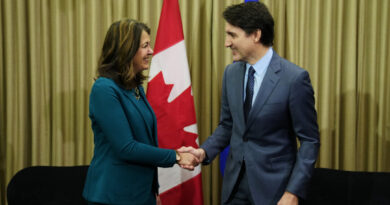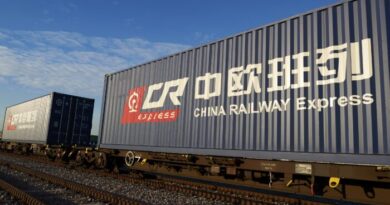Politburo Signals CCP’s Intent to Persist in Trade Conflict with US, Analysts Say, Regardless of Costs
Analysts indicate that Beijing’s unwillingness to settle the impasse with Washington hampers its capacity to address domestic challenges.
News Analysis
On Friday, the leadership of the Chinese Communist Party (CCP) committed to stabilizing the nation’s economy amid rising external pressures. Experts believe that achieving this objective may be obstructed by Beijing’s inflexible position regarding U.S. tariffs.
In a recent closed-door gathering, the Politburo, the CCP’s second-highest leadership body, urged officials to “integrate domestic economic efforts with international trade conflicts,” as per the official summary.
Under the chairmanship of Party chief Xi Jinping, the leaders also promised during the meeting to roll out new “structural monetary policy tools” along with financial measures to promote technical innovation, enhance consumption, and stabilize foreign investments, without providing further details.
The Politburo’s 24 senior leaders generally meet at the end of April to deliberate economic issues. Although the meeting resulted in a brief, technical statement, it provides significant insights into Beijing’s economic priorities, making it a point of interest for investors and analysts.
“This Politburo meeting carries significant weight; it’s where vital decisions are made,” stated Wang He, a commentator on China affairs based in the U.S. and a former university lecturer in China, to The Epoch Times.
“What direction will we take next? The outcomes of the Politburo meeting need to chart the way ahead,” Wang stated.
Currently, it appears Beijing is remaining steadfast in its hardline approach against Washington’s demands, according to Wang.
“The assertive posture of ‘aligning domestic economic efforts with international trade conflicts’ suggests that the CCP is determined to persist in this trade war. They seem prepared for a prolonged confrontation with the United States,” Wang remarked, calling it a “chilling message.”
This strategy also poses risks to the Politburo’s commitment to sustaining domestic economic stability, warns Sun Kuo-hsiang, a professor at Nanhua University in Taiwan.
“China’s economy is under considerable internal strain,” Sun expressed to The Epoch Times. “In light of a decelerating economy, an inflexible approach to trade conflicts constrains Beijing’s strategic options in addressing domestic challenges.”
“It seems to be increasingly common for companies to hesitate in hiring, and young individuals are struggling to find employment,” he noted.

Employees produce garments at a clothing factory in Guangzhou in Guangdong Province, China, on April 16, 2025.Jade Gao/AFP via Getty Images
The official statement from Friday’s meeting highlighted the critical need to stabilize employment, reiterating its importance while committing to enhance job security through increased unemployment insurance for companies adversely impacted by tariffs.
Goldman Sachs has estimated that the U.S. tariffs could threaten up to 20 million jobs tied to exports in China, with the downturn in exports alongside a sluggish global economy putting immense pressure on China’s labor market.
In light of these challenges, Sun predicts that Beijing may resort to heightened social control measures.
“By tightening ideological and speech restrictions, China might achieve stability, but this approach will further stifle innovation and vitality, creating a policy dilemma for its economic survival,” he warned.
Luo Ya contributed to this report.





